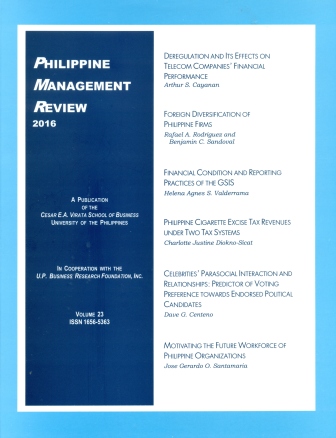Motivating the Future Workforce of Philippine Organizations
Abstract
This study tested the principal motivation theories, namely the Self-Determination Theory and Maslow’s Hierarchy of Needs, by exploring the features of events that Filipino university students considered satisfying. Employing a phenomenological approach (Sheldon, Elliot, Kim, & Kasser, 2001) that captured what was meaningful to the participants, the study asked 186 college students conveniently sampled from two Metro Manila universities to think about an event they considered as satisfying. They were then asked to indicate how they felt certain needs were satisfied during this event. They were also asked the extent to which they felt certain moods during the event. The results revealed that the universal needs proposed by self-determination theory—relatedness, autonomy and competence—as well as the higher-level needs proposed by Maslow—self- esteem and self-actualization—were most salient during the respondents’ most satisfying experiences. However, only the need for autonomy had a significant association with and was a significant predictor of both positive and negative affect. These findings have implications for managers who have the capacity to create the kinds of contexts that can motivate individuals, an important factor in work organizations.
